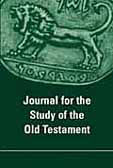The very earliest Christian commentary on the Song is that of Hippolytus. Unfortunately, the text of this commentary is only extant in fragments. Despite this fact, Hippolytus’ work remains of great import to the history of Christian interpretation of the Song.
Great, but where is it? Because of its fragmentary nature, no one seems to bother publishing the text of Hippolytus’ commentary. See this footnote from Roland Murphy’s Commentary on the Song of Songs (pp. 14-15):
Only a small portion of the Greek text is accessible in the Migne edition (PG 10, 627-630). Major fragments of the work preserved in various languages are treated in the following: Gottlieb Nathanael Bonwetsch, Studien zu den Kommentarn Hippolyts zum Buche Daniel und zum Hohenliede (TU 16/2 [N.F. 1]; Leipzig: J. C. Hinrichs, 1897); idem, Hippolyts Kommentar zum Hohenlied auf Grund von N. Marrs Ausgabe des grusinischen Textes (TU 23/2c [N.F. 8]; Leipzig: J. C. Hinrichs, 1902); idem and H. Achelis, eds., Hippolytus Werke, Vol. 1: Hippolyts Kommentar zum Buche Daniel und die Fragmente des Kommentars zum Hohenliede (GCS: Leipzig: J. C. Hinrichs, 1897). A Latin translation of the Georgian text is available: Gérard Garitte, Traités d’Hippolyte (CSCO 264; Louvain: Secretariat du CorpusSCO, 1965).
Ok, so it seems that only one guy was all that interested in publishing the text, Mr. Gottlieb Nathanael Bonwetsch. Now, using the magic of Google Books, I ‘m able to link to the 1897 edition of Hippolytus’ Commentary on Daniel and Song of Songs. And I’m also able to link to the 1902 edition of Hippolytus’ Commentary on just the Song of Songs. I can’t find an online copy of the other 1897 work, nor, of course, of the 1965 Latin translation.
It seems though, that a certain Yancy Smith has recently written a dissertation that includes English translations of these text. You can read about is at Roger Pearse’s blog. The dissertation is entitled “Hippolytus’ Commentary on the On the Song of Songs in Social and Critical Context” (2008) and is currently available through ProQuest UMI and perhaps soon through Brill with the title “The Mystery of the Anointing Hippolytus’ Commentary on the On the Song of Songs in Social and Critical Context,” which can be viewed online. The translations of Hippolytus’ work are in a separate section. I have a feeling Mr. Smith could turn the translation section alone into a nice book for us. Perhaps in the next few years, we’ll see it. But for now, he has done everyone a noble service providing these texts in translation online.
[Edited 1/16/18 to fix links]
 The Journal for the Study of the Old Testament just published my latest academic article on the canonicity of the Song of Songs. Full citation is:
The Journal for the Study of the Old Testament just published my latest academic article on the canonicity of the Song of Songs. Full citation is: